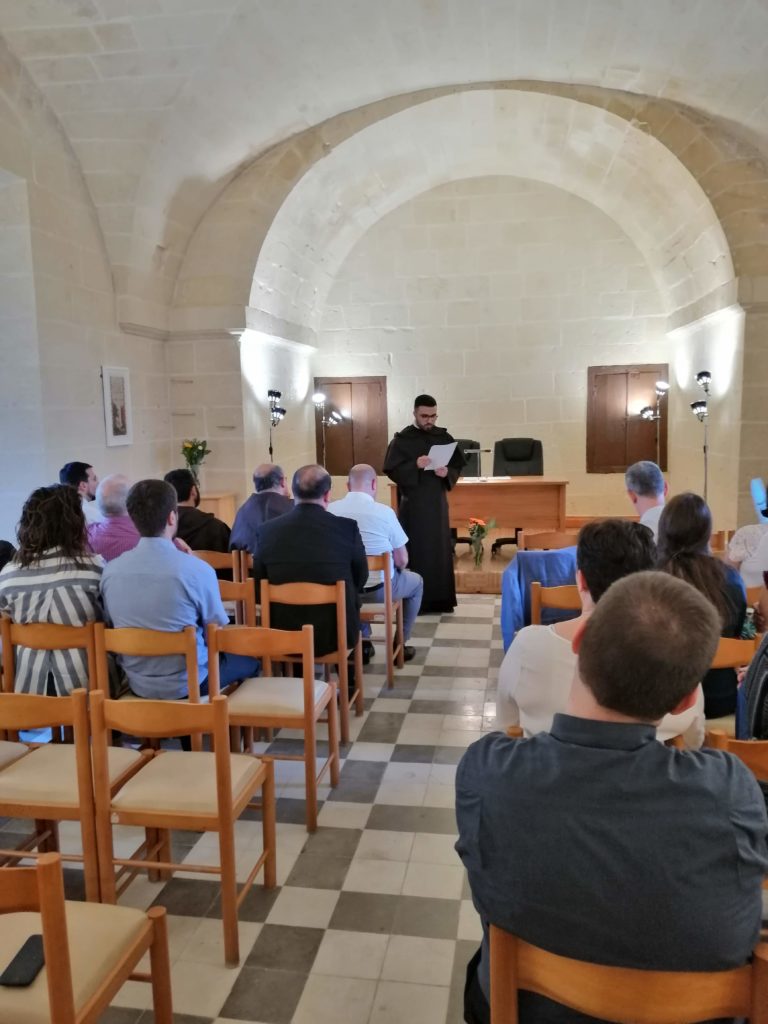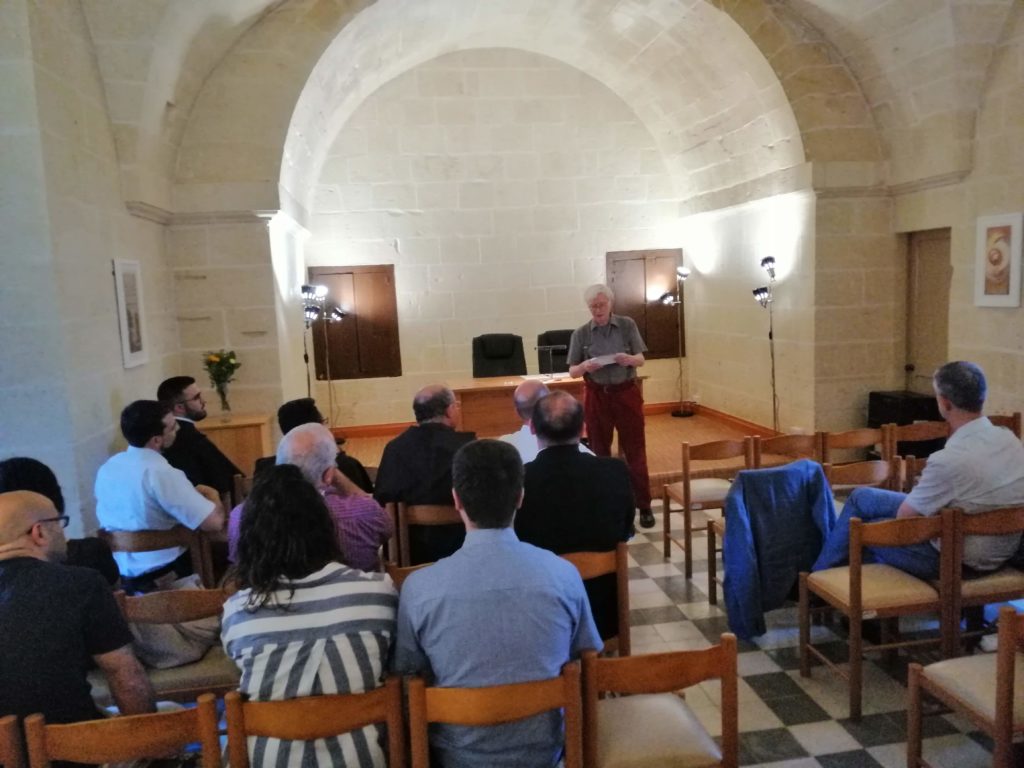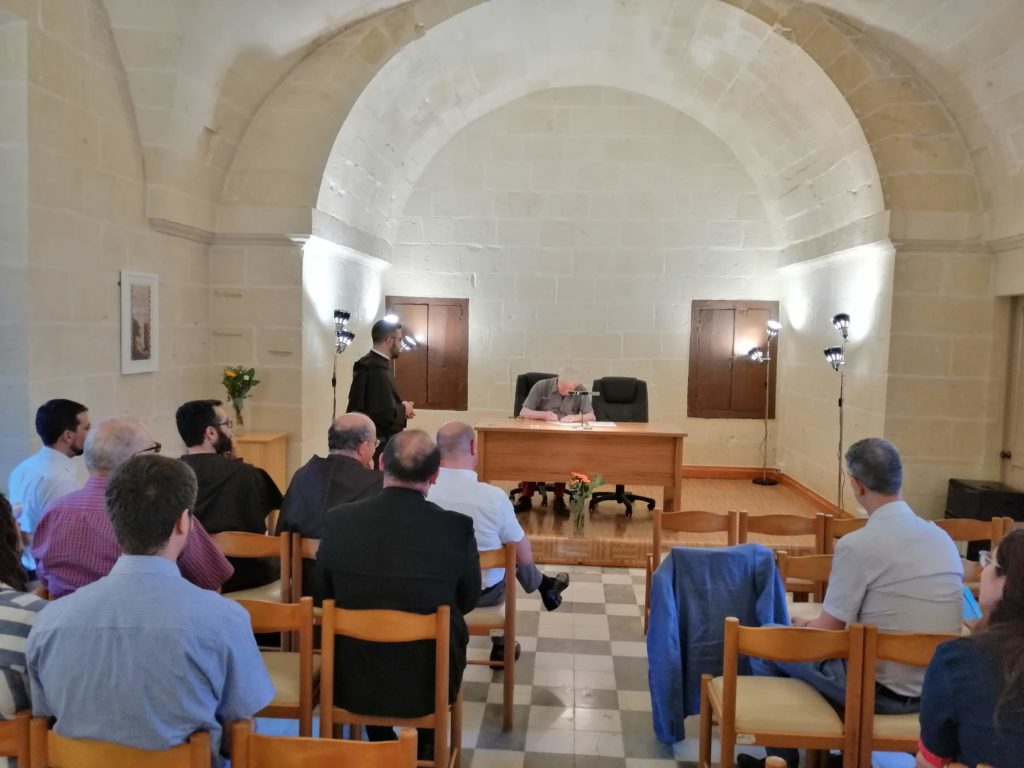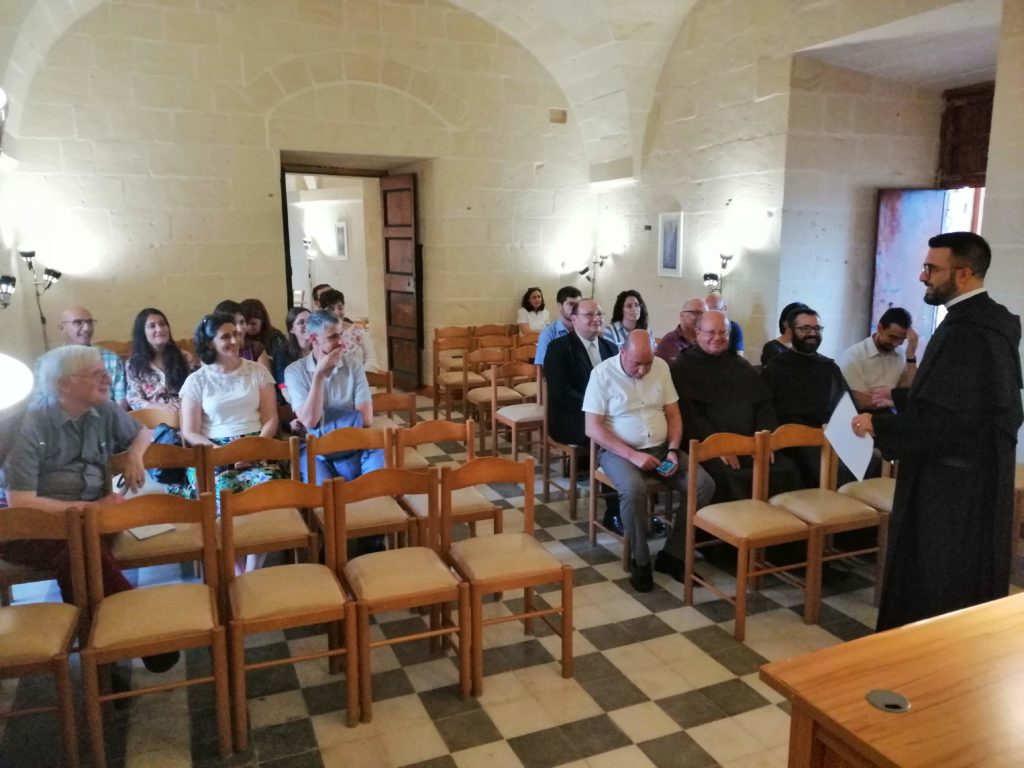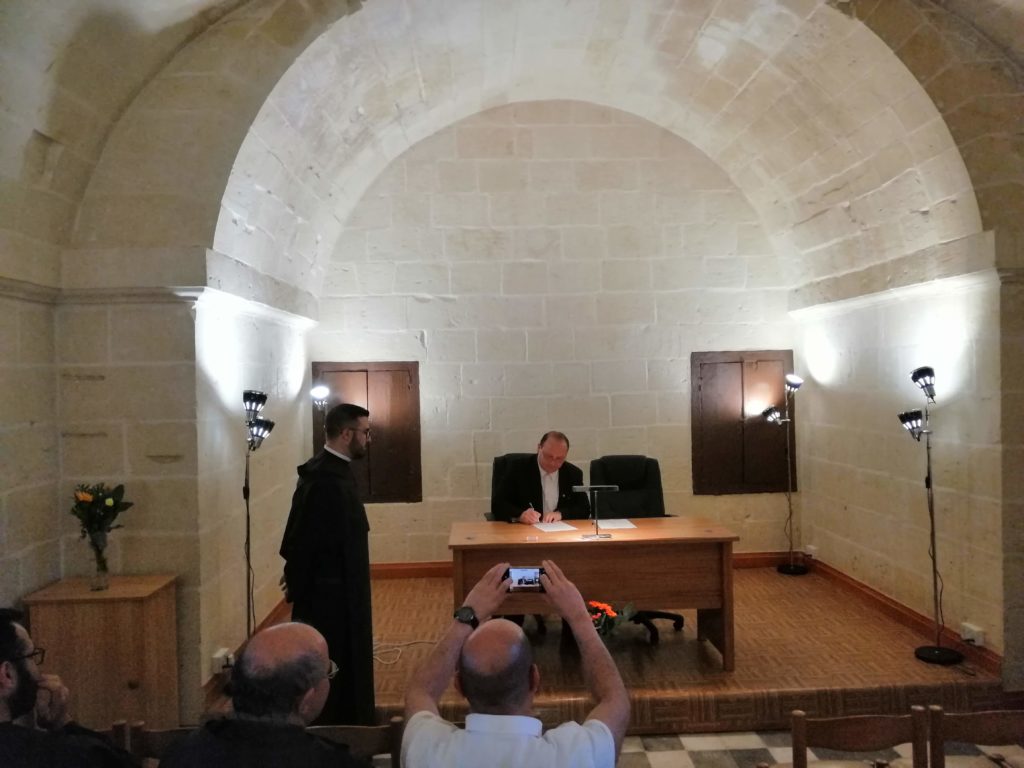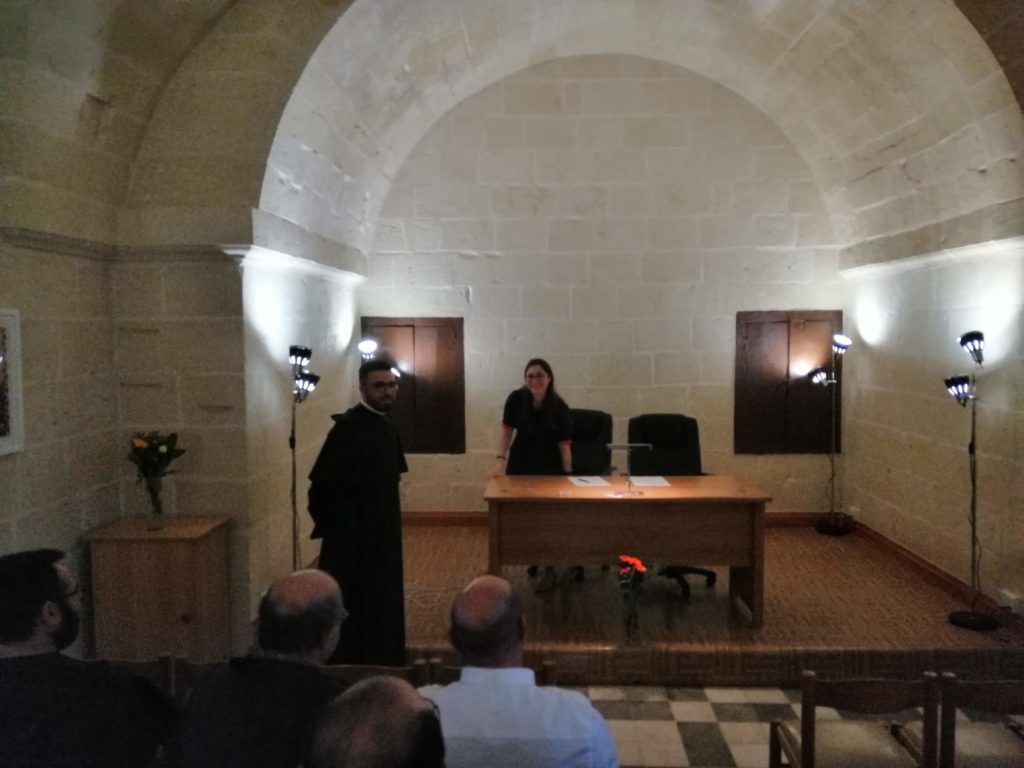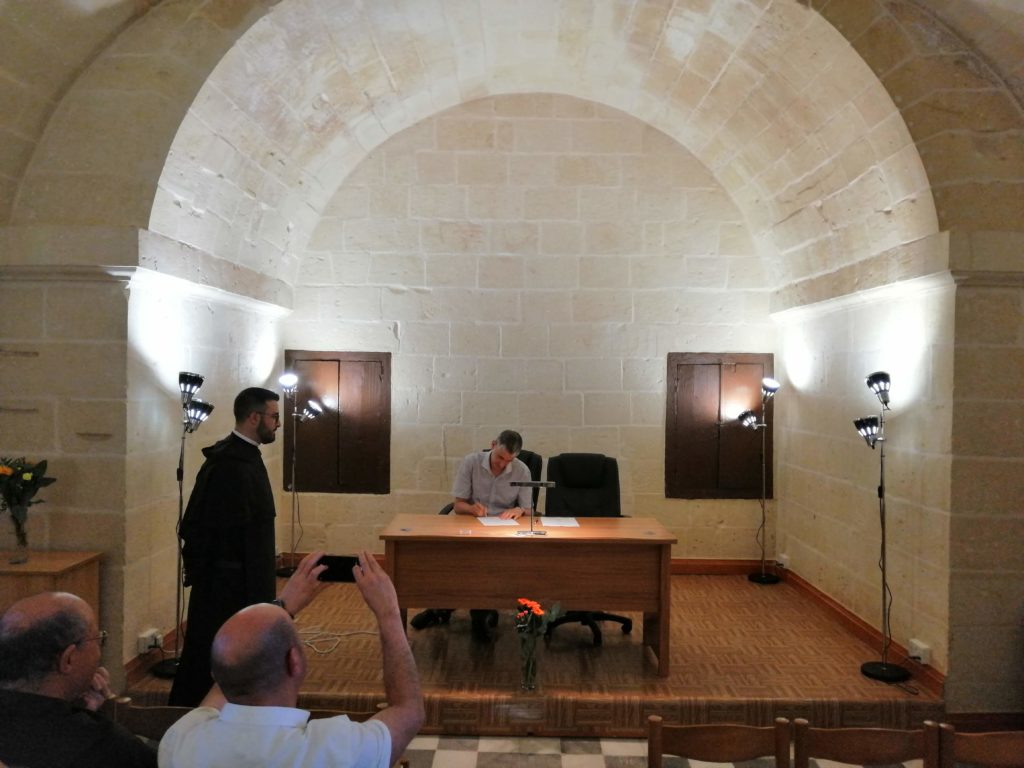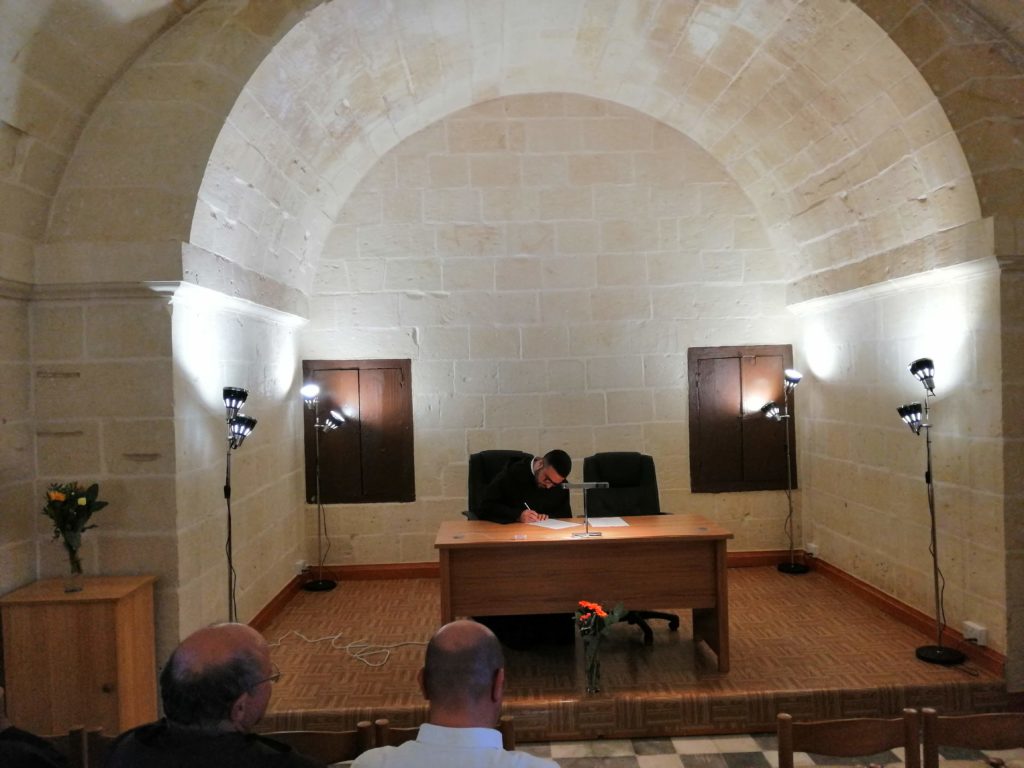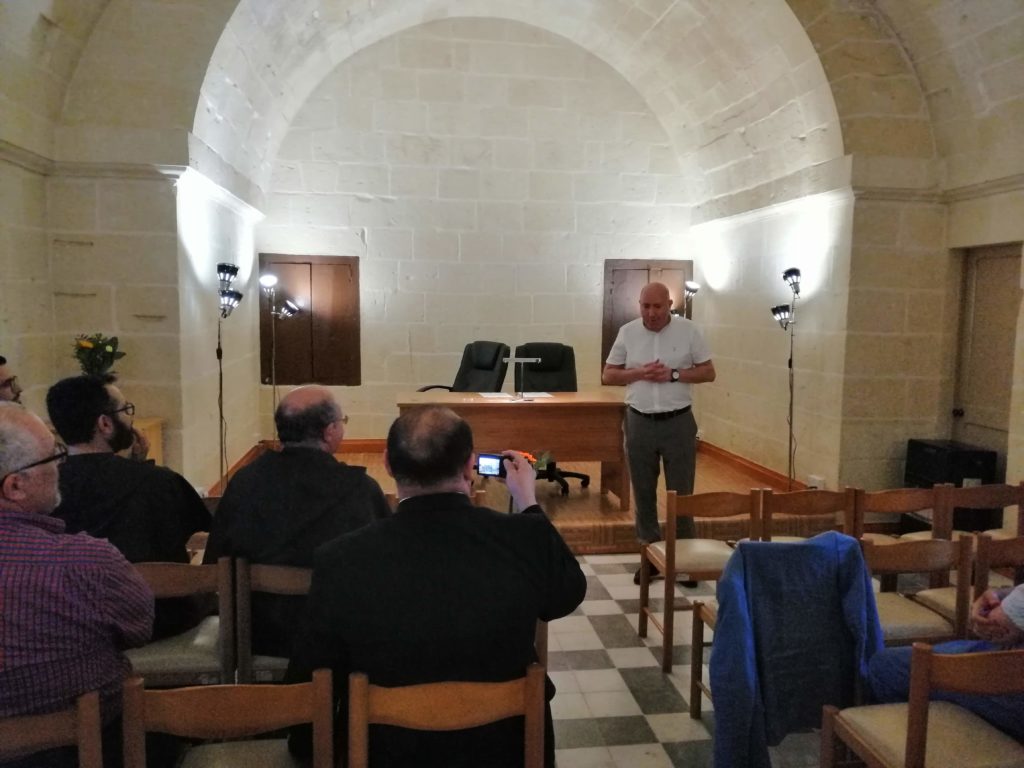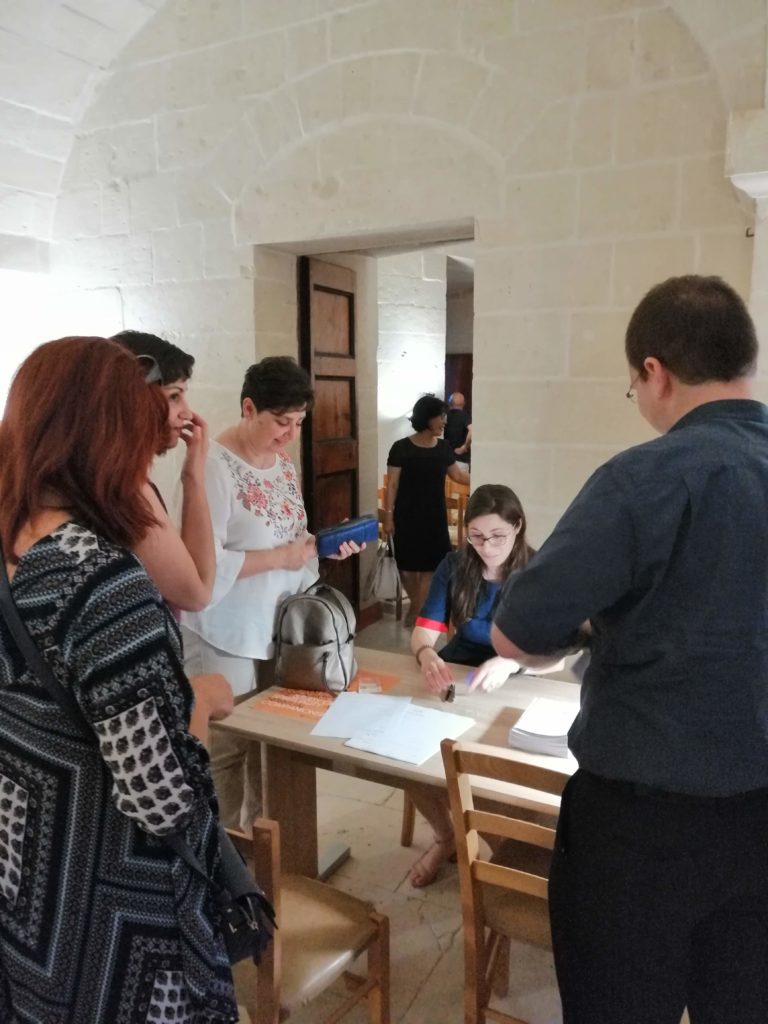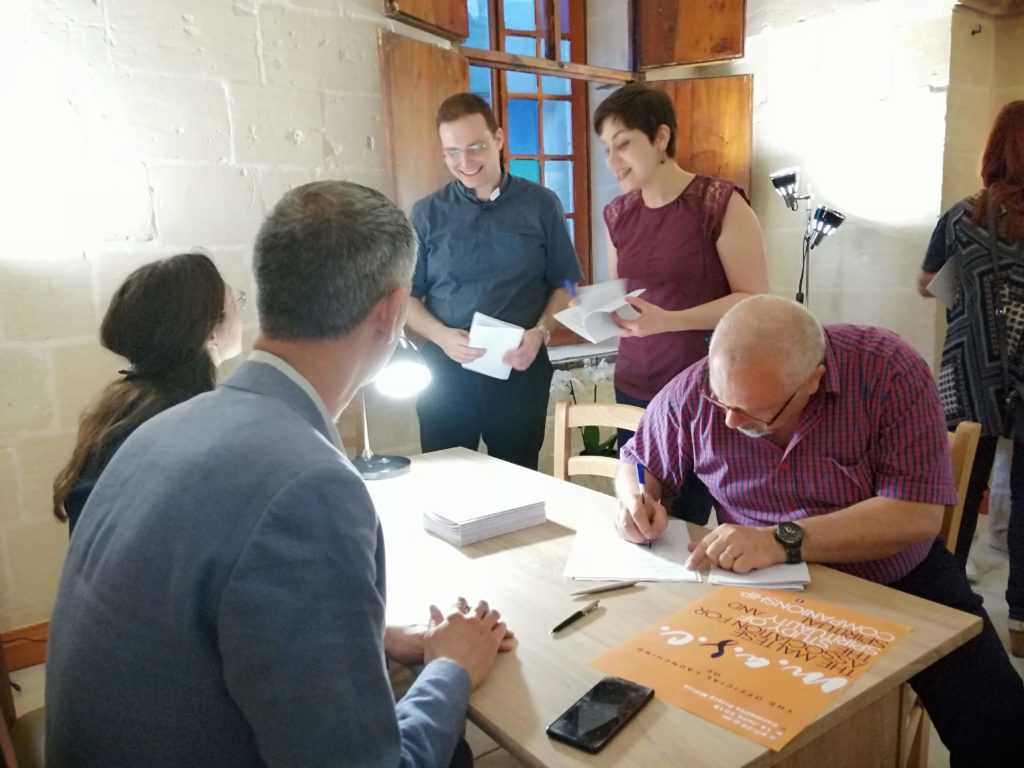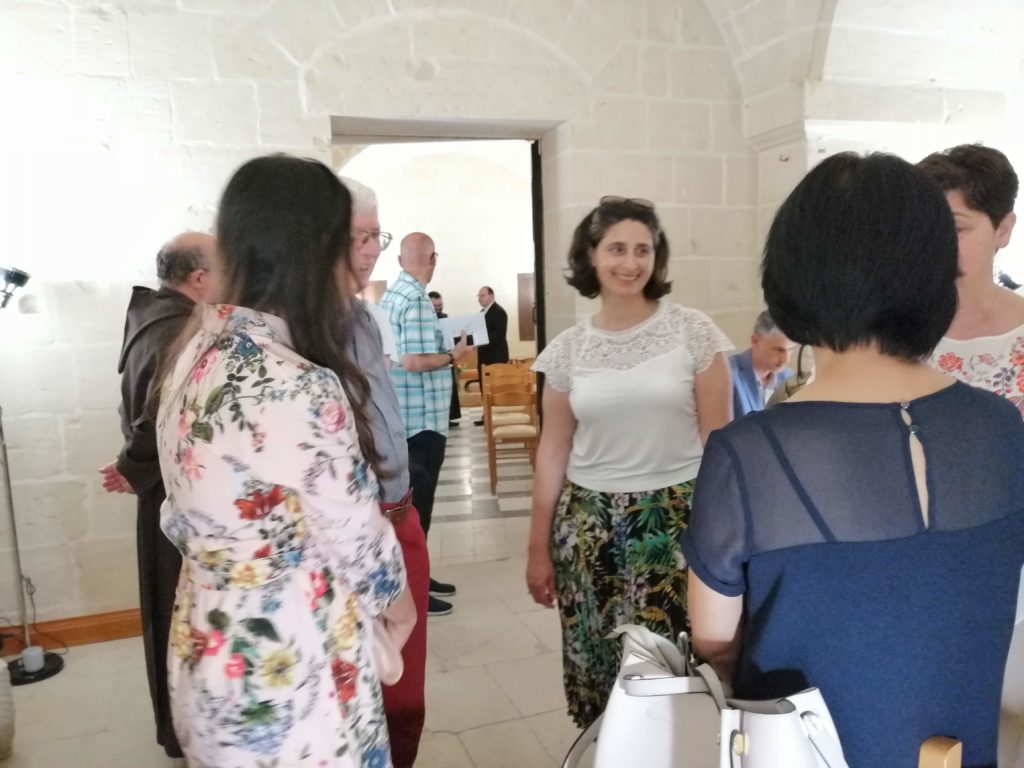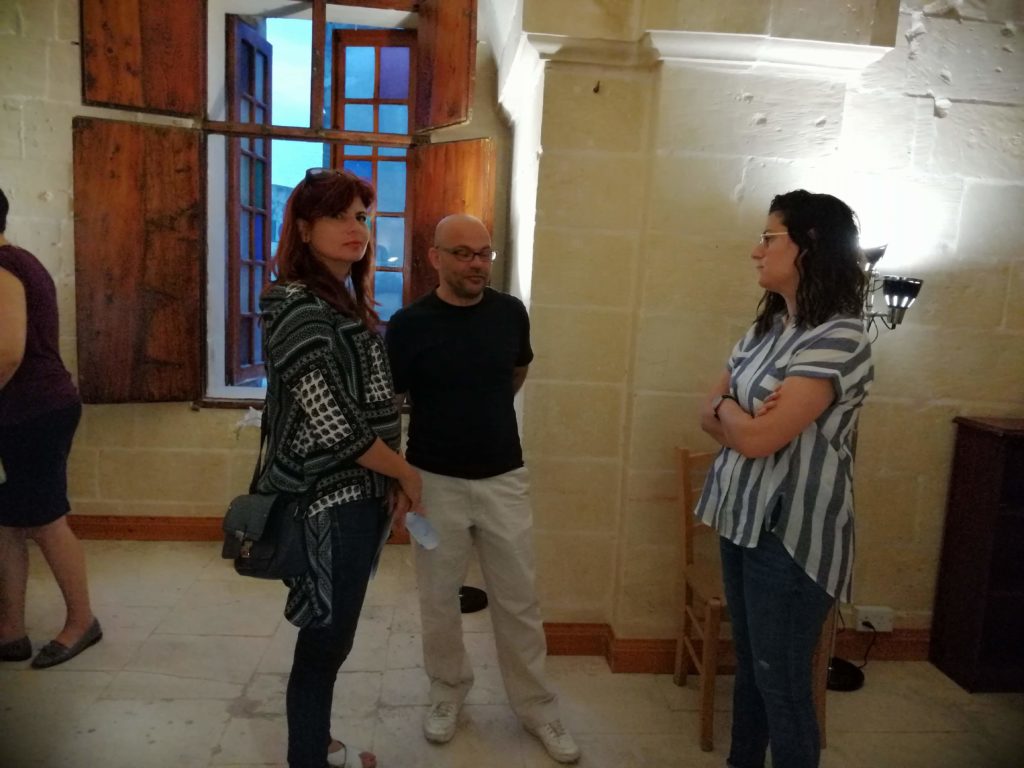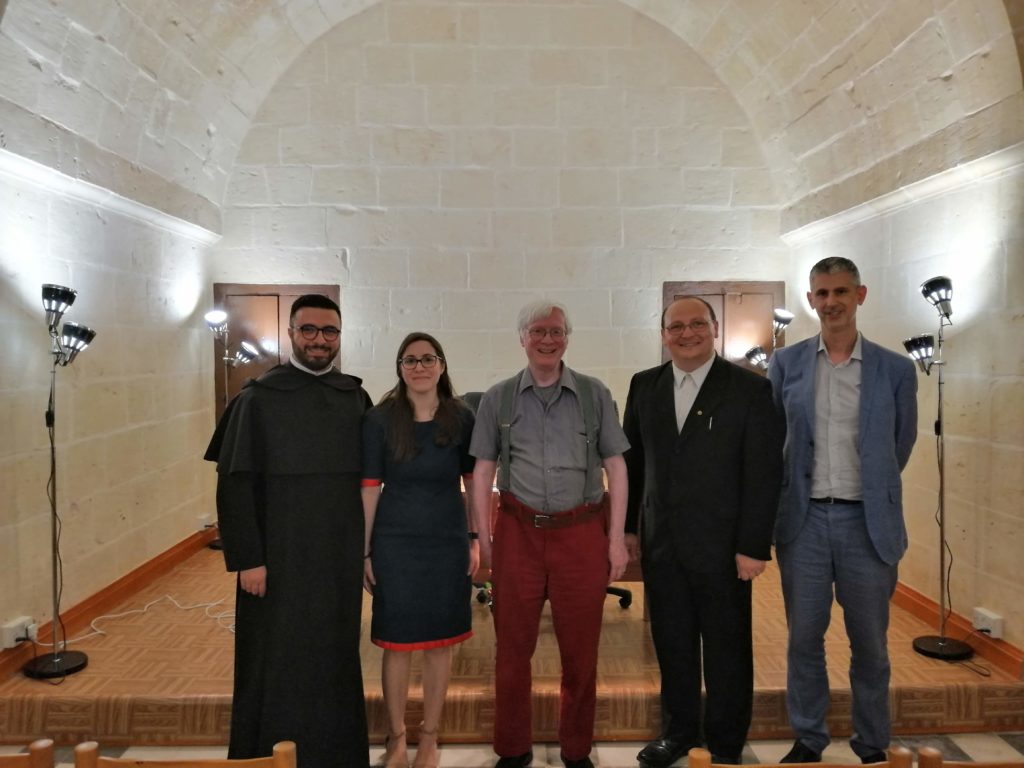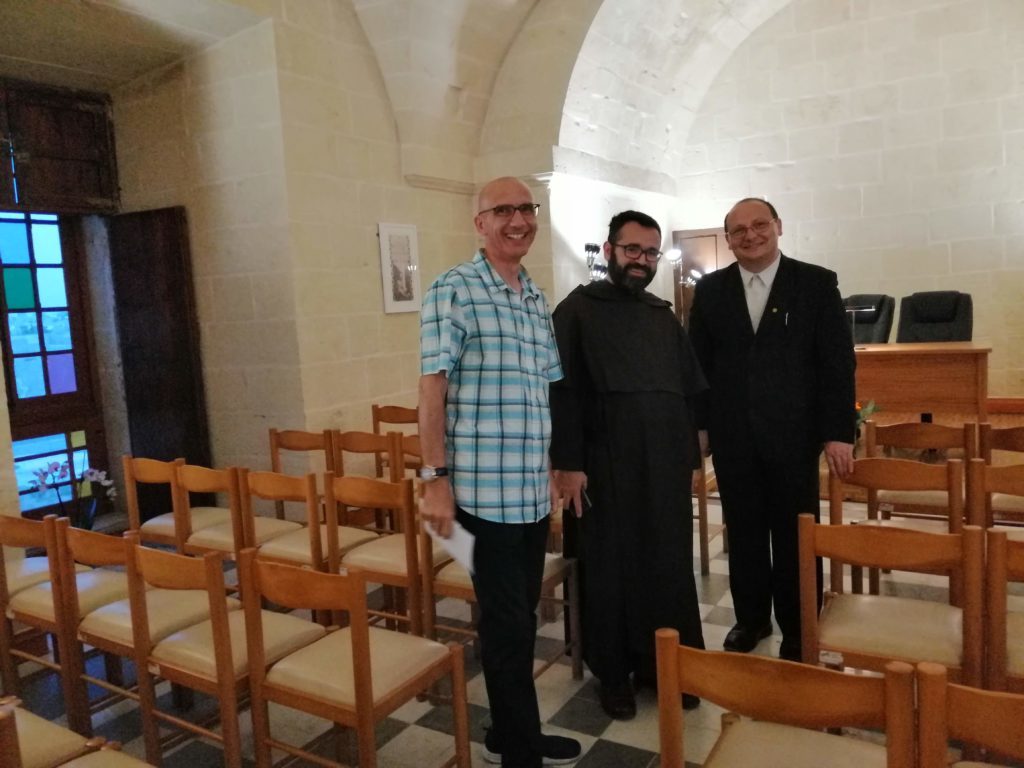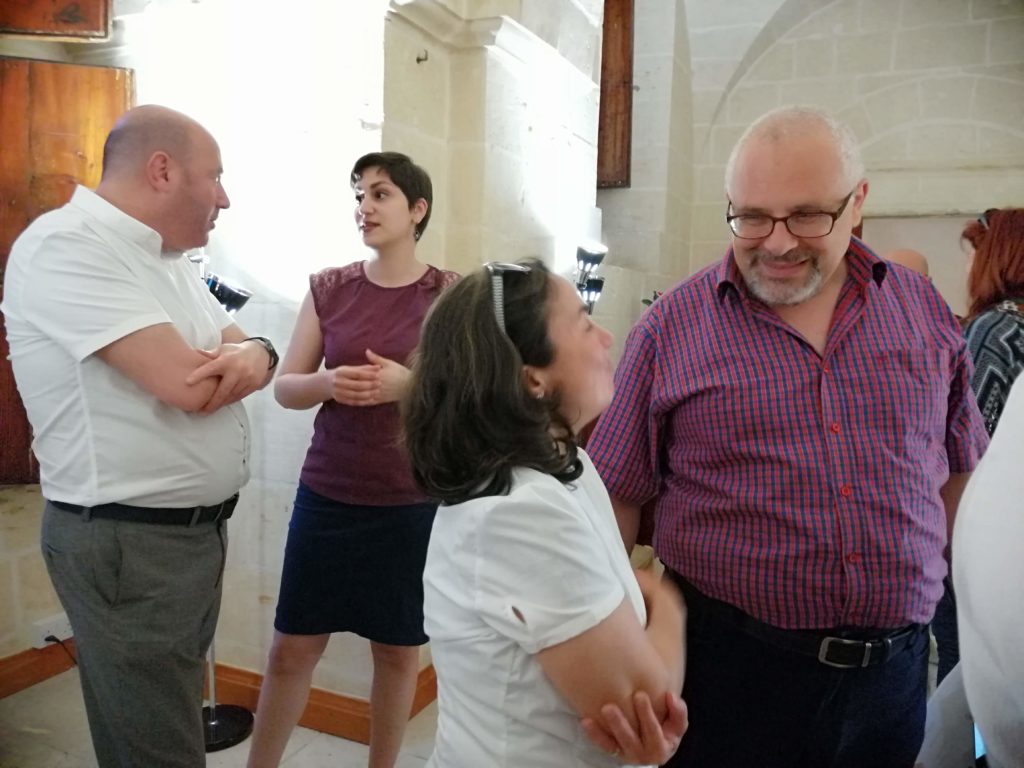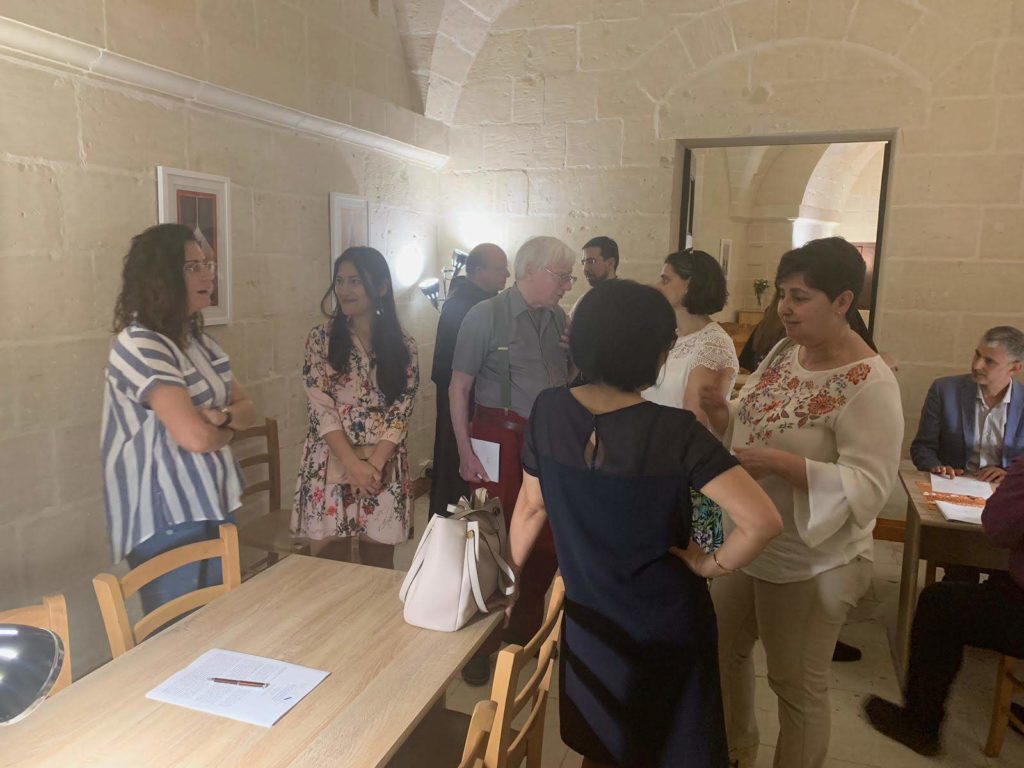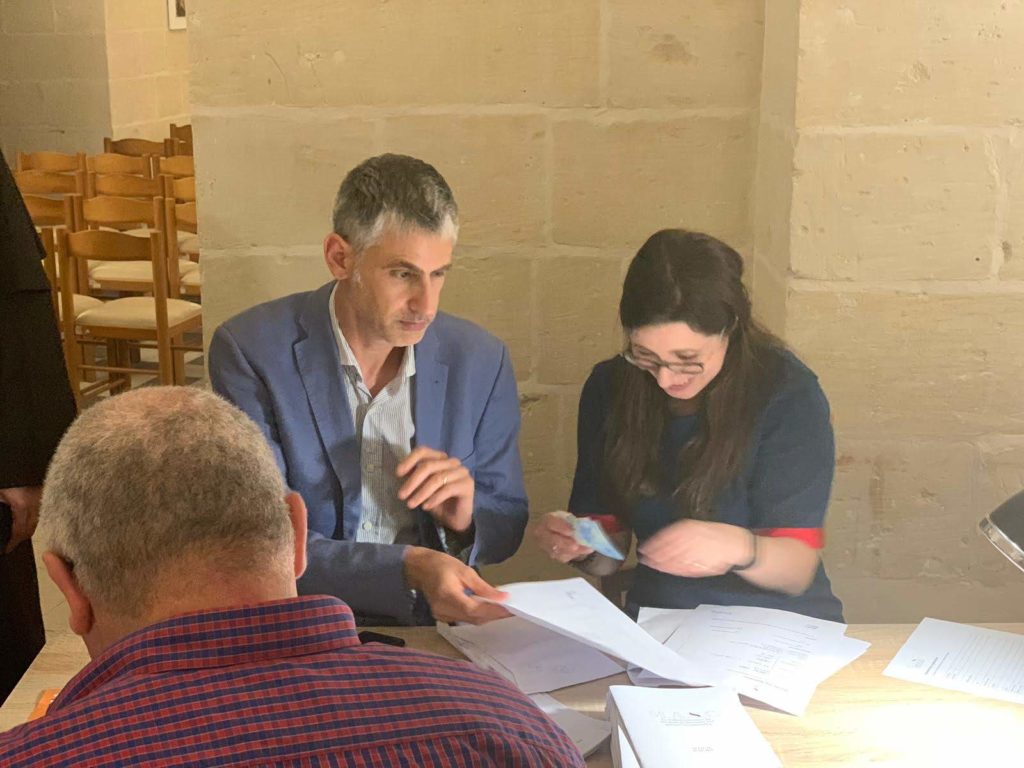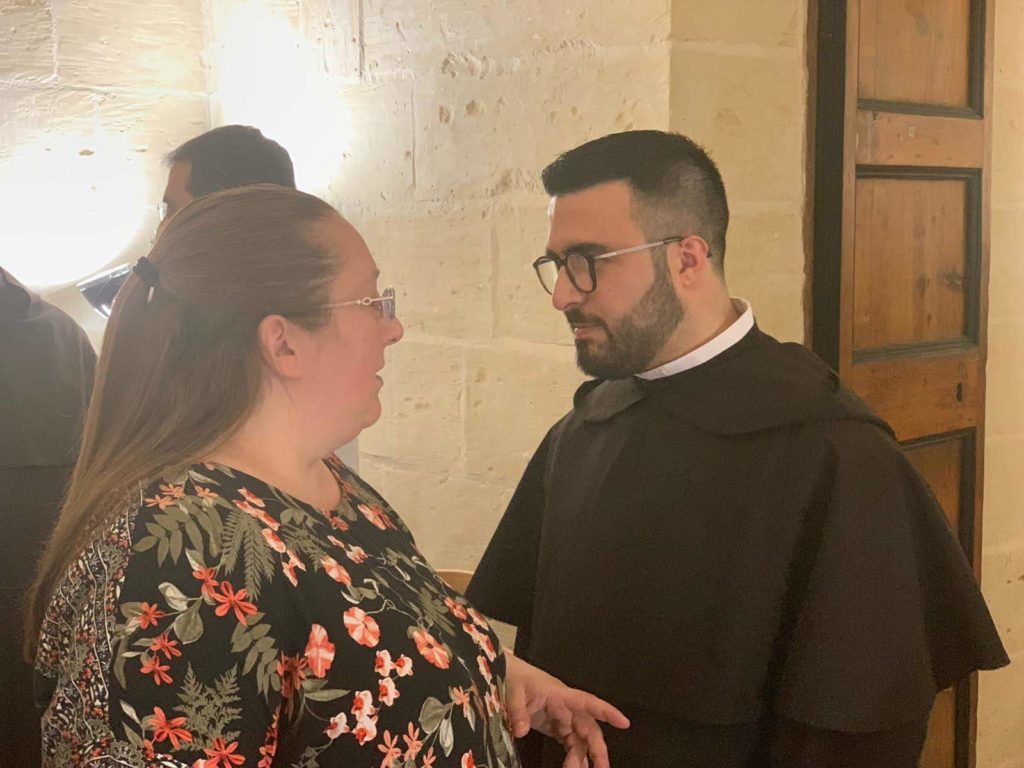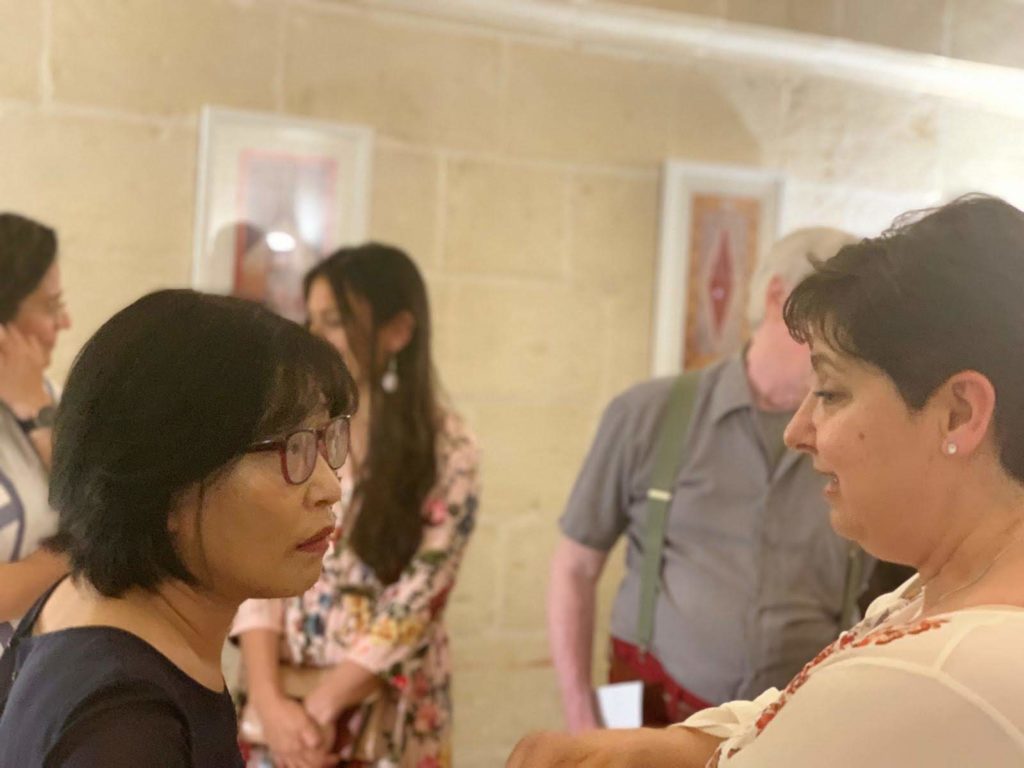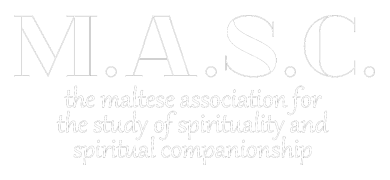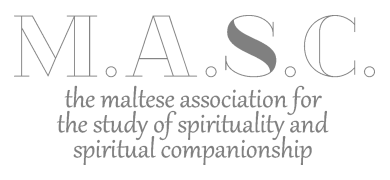Carmelite Priory, Mdina | 14 June 2019
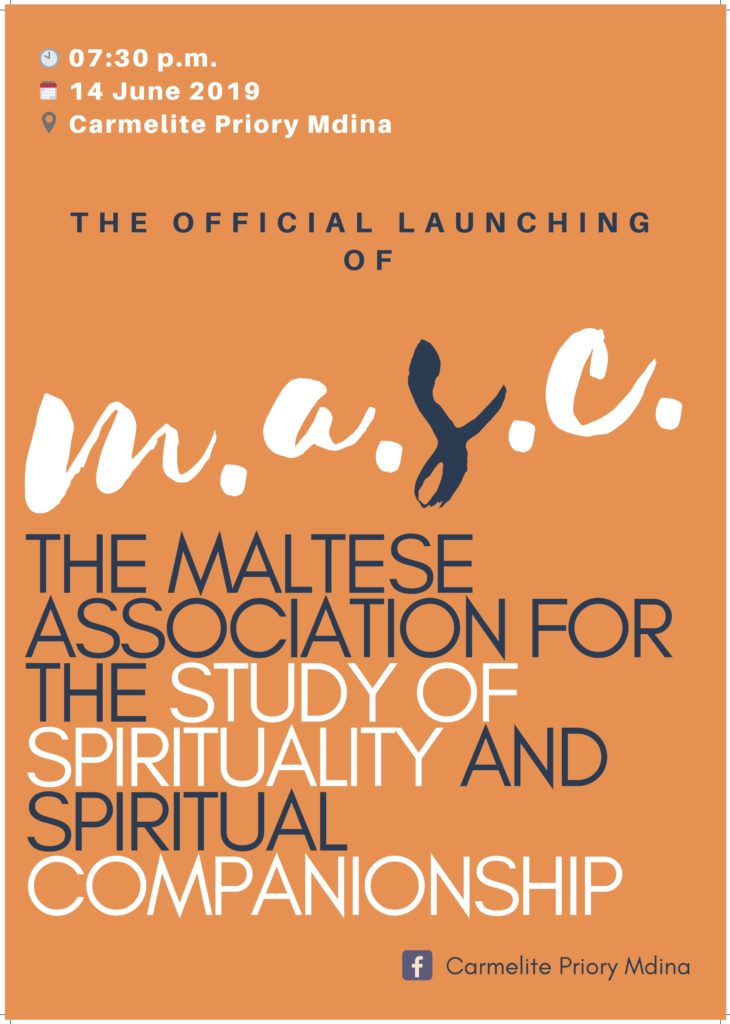
Address by Fr. Glen Attard O.Carm., Facilitator of the Steering Committee for the setting up of MASC
Good evening and welcome all to the official launching of The Maltese Association for the Study of Spirituality and Spiritual Companionship, or M.A.S.C. in short. Tonight’s event marks the culmination of sixteen months of discussions which saw us effectively give words to a core vision that we all shared in one way or another and also, with much effort, slowly but surely create a simple, democratic structure to ensure the longevity of this vision.
Tonight’s programme will be a simple one. First I will speak to you briefly about the roots of MASC, its aims and the tasks it wishes to set forth for itself in Maltese society and in the Church, then the newly elected Chairman of the Association Edward Clemmer will give us a short presentation about the vision of MASC, then the newly elected Executive Committee will sign the approved Statute on behalf of all the members of the Association, and finally, closing this official launching, the Dean of the Faculty of Theology will also share with us a few final words. After this first official part, we can then continue our fellowship, introducing ourselves to each other, downstairs with refreshments.
So, the first question one asks is: why the need for MASC? As things currently stand, over the last decades we have seen a booming trend in the field of Spirituality, first of all with more and more people claiming to be spiritual, which has led to more and more researchers studying the spiritual and mystical phenomenon in all its complexity, which has in turn led to more and more Associations – very much similar to the one we are launching tonight – to be founded all over the world. It is our common drive – and urgent need, to a certain extent – for an intelligent understanding of spirituality and mysticism that has brought us here tonight. MASC was born thanks to the desire of many graduates who consistently asked Fr Charlò and myself about what opportunities exist out there to continue forming oneself in the field of spirituality as well as what other opportunities there are to put into practice the preparation – or as I like to call it: formation – they received in the field. This essential desire brought nine graduates together on 20 January 2018 who started a journey together of what potentially (and I hope) could become a major contribution to spirituality and companionship in the Church here in Malta. Alas, in the Gospel of Matthew we read, “The kingdom of heaven is like a mustard seed that someone took and sowed in his field; it is the smallest of all the seeds, but when it has grown it is the greatest of shrubs and becomes a tree, so that the birds of the air come and make nests in its branches.” (Mt 13:31-32) MASC is still a tiny seed, but let us be encouraged by the fact that 2.4 billion Christians around the world owe their religious roots thanks to a tiny community in war-torn Jerusalem two thousand years ago.
So what is MASC all about? A key factor is what could only be described as the holy trinity of MASC’s operation, namely its being voluntary, autonomous, and lay.
(i) MASC is a voluntary organisation. Its very existence depends on each and every one’s willingness and commitment to come together, to enrich one another and, in turn, to be enriched spiritually and professionally. The academic nature of our studies is, thus, grounded in a sharing of concrete experiences whereby, in getting to know each other’s backgrounds and work, the material we study takes on a more ecclesial and communitarian dimension among peers specialising in the same field of research or work.
(ii) MASC is also autonomous. It is being launched as an independent professional platform for research and dialogue with a strong emphasis on collaboration with other local and international institutions so as to enhance one’s ongoing formation and work in the field. The Association was set up with the distinctive aim to cater for both MA programmes – Spirituality and Companionship – so that it not only continues to provide professional help with research in Spirituality by means of regular seminars, conferences, workshops, etc, which it intends to organise from time to time, but also to provide adequate spaces by means of local fora where spiritual directors and companions could come together and discuss the particularly important theme of spiritual direction in contemporary Malta.
(iii) Finally, and perhaps most importantly, MASC is also lay. This Association intends to create a space for the laity in Malta who are working and studying in the field of spirituality and spiritual companionship. Throughout our discussions over the last sixteen months, this was always a particularly important point that we kept on referring to as it resonated with everyone’s core ideals of the organicity and the dynamic vision of the Church. By its very nature, MASC hopes to be a concrete expression of lay empowerment and spiritual synodality in the Church, addressing its reflections and discussions specifically towards the various dimensions of people’s spirituality in the world from a Christian perspective.
One last question: what do we want MASC to be? A platform where any individual aptly prepared will be able to feel comfortable enough to share ideas, projects, and one’s work in the field of spirituality, mysticism, and companionship, where any one can shine by any means comfortable to him/her (whether this is in research, publication of articles, organising events, creating contacts, facilitating focus groups, and much more), where any one with the necessary preparation and qualifications, most especially the lay, can be given the opportunity to bring forward projects and different perspectives to the field particularly by means of initiatives that resonate more with the spiritual needs of the laity. I am reminded of what has been called Pope Francis’ culture of encounter. In Evangelii Gaudium he writes us these inspiring words, “The Church which “goes forth” is a community of missionary disciples who take the first step, who are involved and supportive, who bear fruit and rejoice. An evangelizing community knows that the Lord has taken the initiative, he has loved us first (cf. 1 Jn 4:19), and therefore we can move forward, boldly take the initiative, go out to others, seek those who have fallen away, stand at the crossroads and welcome the outcast […] Let us try a little harder to take the first step and to become involved. Jesus washed the feet of his disciples. The Lord gets involved and he involves his own, as he kneels to wash their feet. He tells his disciples: “You will be blessed if you do this” (Jn 13:17). An evangelizing community gets involved by word and deed in people’s daily lives; it bridges distances, it is willing to abase itself if necessary, and it embraces human life, touching the suffering flesh of Christ in others. Evangelizers thus take on the “smell of the sheep” and the sheep are willing to hear their voice […] Thus, the Church evangelizes and is herself evangelized.” (n. 24).
I congratulate us all for having arrived at this important milestone and I truly augur many more years of fruitful experiences of fellowship, formation, and service to the Church and the world. Allow me also one final word of appreciation to you all for having allowed Fr Charlò and myself to accompany you throughout this journey. Prudence is key. Dream big and take one step at a time.
Address by Dr Edward J. Clemmer, First Chairperson of MASC
M.A.S.C. – The Maltese Association for the Study of Spirituality and Spiritual Companionship. How did we get here, its history? And now, how do we get to where we’re going, its future?
Its history and future have the same path. And, if I were to formulate this path, as a motto for the association, for its Foundation Day, and perhaps, for its future — I suggest, that this path, or motto, has been – and would consist of – three verb phrases.
The first phrase: “to listen,” or as given in Latin, “audire” (to hear), or instead of the infinitive form of the verb, let’s turn it better into a present progressive participle, as in the ongoing act of listening, as “audiendo,” or in its verbalized noun form, we have “audiens,” by which is given, what is heard.
We, the audience, listen [the several of us, past, present, and future]; and what do we hear? If this were a game of Jeopardy, the answer for our category (audiendo or audiens, or listening) would be put into its question form; and our response might be, perhaps, “What is prayer?” Or, defined more specifically, “What is desire?” Are we listening to, and hearing, the desire of human hearts? Is it not also the Divine human heart of Our Lord, and the desire and the will of the One Triune God?
And so it was, soon after the start of the New Year in 2018, that Fr. Charló, after hearing the desires of various human hearts and discerning the human and divine possibilities, he proposed, to the 22 graduate students (Level 7) in Spirituality or in Spiritual Companionship, our first meeting for the purpose of the Association. Nine graduates attended that first meeting in January, also including husband and wife Pia & Stefan Attard, Jonathon Attard, Nikol Baldacchino, and Cynthia Grech Sammut; and over the next sixteen months various MA graduates attended meetings, not all simultaneously, but nineteen (19) persons in all, including Michael Merceica, Emmanuel Said, and Rita Vella Brincat, also with every person contributing according to their means and abilities.
Sometimes, as it does, “listening” comes to one with the force of the “Word of God.” This leads me to consider the second verb phrase that seems to me to summarize the Association’s recent history, and its proximate future, namely: “to do,” or more appropriately, that is, as in the Latin “agere,” “to act,” referring to the generic task of performing any action, which is not always evident, or available to be seen, from the viewpoint of actual future, but from our presently not yet. This action does not exclude something, which otherwise, may become clearly specific, as in the Latin “facere,” to make, or to do something specific: like producing the statutes of the Association, as we have done. The ongoing act, in the ongoing action, in its participial form, is “agendo,”or in its noun form “agens,” namely, whatever is in the process of being made.
In the Association’s recent agenda, no one was lost for words in its formation. There was no one lost for charity, either, both in their dedication, and in their service to the future Association, for those who were called to this task, but also in relationship to their ongoing life requirements, whenever and however the discernment of the Spirit so moved them. Sometimes, in their “doing,” more so it was like one’s “being acted upon,” as each person is called, and says “yes” to the “Word of God.”
Respectively, there were five different ad hoc secretaries for those Association formation meetings: Pieriena Mercieca, Patricia Micallef, Claudio Laferla, myself, and Fr. Glen. After the third meeting, after everyone had listened, in May 2018 the formation of the Association was placed in the hands of its three administrators, who also chaired that process: thereafter, Pieriena Mercieca, Christopher Bezzina, and Fiona Catania. They formulated and quantified an Association questionnaire, which results we reviewed with them, that defined the Association and its legal requirements, and led to the drafting of the Association statutes. Those three persons, accompanied by Fr. Glen, chaperoned us to the conclusion of the formation phase, until the election of the Executive Committee.
And so it is, in the MASC Executive Committee, we now have five persons by election: these include myself, Edward Clemmer (from Spirituality, 2017), Chairperson; Martin Azzopardi (from Spiritual Companionship, 2014), Deputy Chairperson; Fr. Glen Attard, Secretary; Ms. Fiona Catania (from Spiritual Companionship, 2018), Treasurer; and Tyrone Grima (Theology Ph.D., 2018), Assistant Treasurer. And as our representative for the Association on the Faculty of Theology, and external to the Executive Committee, we have Fr. Charló Camilleri.
By way of a simple introduction, on behalf of and for each person of the Executive Committee, let me say one brief descriptive sentence for each:
(1) As for myself, at 71-years-of-age: after twenty years of university teaching, since 1996 I am retired as a social psychologist; but subsequently, for twenty-three years, I have been married to my wife, Jane Zammit, the polyglot former tourist-guide, current actress, and Director of her theatre company; also, in the US, I have four sons and three grandchildren from a first marriage. And beyond my American formative experience with the Crosier Fathers, the Dominicans, the Franciscans, the Jesuits, the Augustinians, and the Benedictines, I am being reformed, now, in Carmelite Spirituality.
(2) Martin Azzopardi is a “multi-plex” person; a member of MUSEO; who directs religious instruction at St. Margaret’s College, Verdala Secondary School, Cospicua. His ecumenism extends to oriental religions, and to catechesis in China and his active learning of Chinese; presently, he is also living with and caring for his aged parents; as he informs us in his MA Thesis on the Experience of Guilt: following Meister Eckhart, the will of God is accomplished without guilt by “Purity of Heart.”
(3) Fr. Glen, as Secretary to the Provincial and Carmelite Community Archivist, is also now our Association Secretary; and with his specialization on Eastern Orthodox Christianity, I believe, soon now, he will be publishing his recent doctoral thesis on Spiritual Friendship in the theology of Pavel Florenski.
(4) Fiona Catania is our Association Treasurer: with her B. Comm. degree, she now has been employed in the banking industry for seven years; but within her own spiritual journey, and in her MA Thesis on Adrienne von Speyr, Fiona has taken to heart Speyr’s integrated feminine view of the Trinity within its spiritual appreciation for Christian marriage, which vocation Fiona will soon take up.
(5) In Tyrone Grima, we find a person of dedicated contemplative action, inclusive of his work in theatre: he is now head of pastoral care for Pia Ossana, and its extension Dar Mamma Margherita – a Salesians residential home for homeless persons, whom are given definition with Tyrone’s script and forthcoming production of “Zayden,” July 25-28, in Valletta. Tyrone’s spiritual context, “on detachment and the relational,” is defined within his doctoral thesis on Simone Weil.
This brings me to my third, and final, verb phrase, in the form of a motto, towards a vision of the present and future Association: “journeying together,” where the Latin does not work for me, but where I feel I need Spanish and Maltese: first, for the first word, in the Spanish, with the verb form: “caminar,”and/or in its noun form, “el camino.” We travel, generally on foot, and by agreement with one another, and that “journey” is laid out ahead of us, on the “beaten path,” where we follow in the Lord’s footsteps, in the adventure that is the voyage of the Cross. For me, the journey is like “El Camino del Santiago,” or with others on the road, from Jerusalem to Emmaus after the Resurrection, with the other disciples and with the Lord, who becomes visible to us in His words and in his signs.
The second word of my third verb phrase is “together,” which in Latin might be “in unum,” in one, or in unity, or in Association, but my feeling, for the best expression for this element, is in the Maltese, “flimkien,” where we never travel alone, and we always travel “together,” both in each other’s company and in conjunction with one/another. We don’t act alone or individually, but together: in unity with the Spirit of God, which is Trinity: Father, Son, and Holy Spirit; in spiritual companionship with God, and with Mary who is our universal spiritual Mother, and with one another; and in our encounters and relationships with presently undefined others, as our Brothers and Sisters in the Body of Christ, who show us, and lead us, to the face of God. So, “In our listening and acting, we journey together,” and as we are, we are transformed in God; in this, we assist the spiritual journey of all who seek to see, ultimately, the face of God, and God in each other. So, let’s hit the road.
